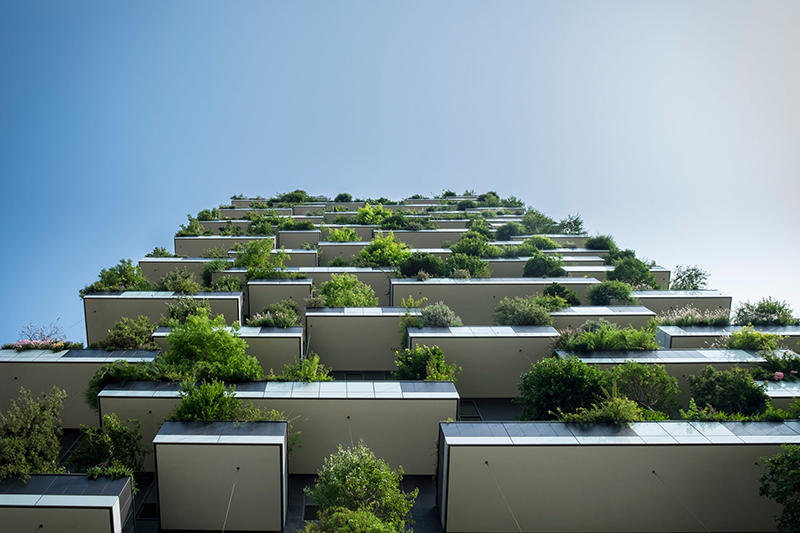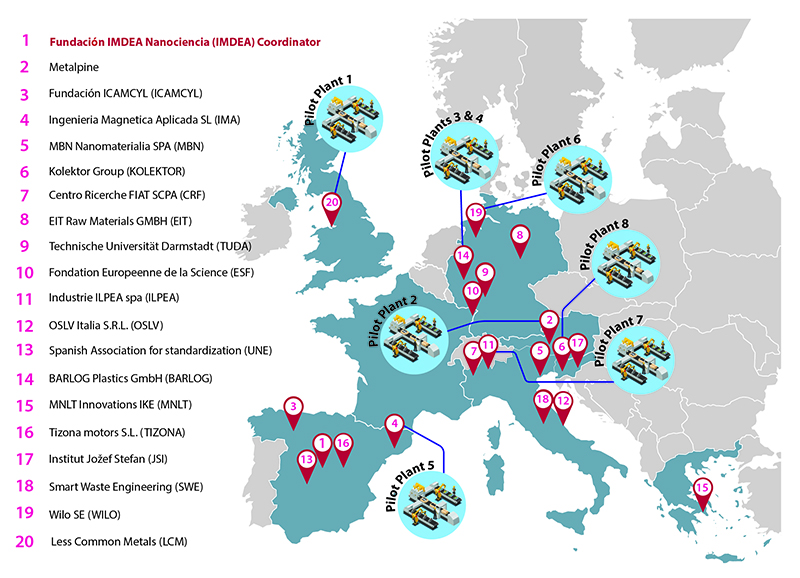IMDEA Nanociencia coordinates the PASSENGER project: enabling a more sustainable and green Europe
12.05.2021

- The project counts on a €11.3 M budget (€8.9 M from the European Union).
- The PASSENGER consortium comprises 20 partners (14 companies) from 8 European countries.
- PASSENGER will secure a sustainable industrial solution to Europe’s strategic dependence on diverse raw materials, critical in technological development.
- The project’s applications in e-mobility will contribute to the EU Green Deal objectives of zero emissions and clean urban transportation.
Madrid, 12th May, 2021. The Madrid Institute for Advanced Studies in Nanoscience (IMDEA Nanociencia) will coordinate the PASSENGER project (Pilot Action for Securing a Sustainable European Next Generation of Efficient RE-free magnets), a project funded by the European Union from the climate action, environment, resource efficiency and raw materials work programme.
Nowadays the lack of sustainable access to several critical raw materials is one of the most serious challenges faced by the European Raw Materials sector. Permanent magnets are one of the most vulnerable categories. These magnets are critical components in technologies that are crucial to Europe's energy and transport sustainability such as, electric vehicles, wind turbines, aerospace, medical equipment and a multitude of domestic appliances.
PASSENGER aims to develop innovative pilot plants to address this aspect of high economical, technological, social and environmental relevance: a solution for the EU dependency on rare-earth raw materials for permanent magnets, avoiding bottlenecks in the material supply-chain and diminishing the environmental impact.
Considering the importance of permanent magnets in present and emerging technologies, PASSENGER will develop scaled alternatives based on resources widely available in Europe and innovative technologies. The project aims to develop a sustainable substitution model in permanent magnets subdivided in 8 innovative pilot plant activities covering the complete value chain and including electromobility as a main key-driving sector. The choice of materials is based on existing research and technological development achieved by the partners in the frame of previous successful EU funded projects.

The multidisciplinary PASSENGER consortium consists of 20 partners including key end users and SMEs/LEs (14 companies) from 8 EU countries: Spain, Austria, Italy, Slovenia, Germany, France, Greece and United Kingdom. It involves major European industries, academic leaders and associations occupied with permanent magnets manufacturing, alloy production, powder fabrication, electric motors, e-vehicles, eco-design and product/process standardisation. Thus, PASSENGER covers the whole magnets production value chain, from studying fundamental properties to the production of high-technology end products, while aiming at making the transition from a linear to a circular model involving citizens, international platforms and relevant stakeholders. This unique combination of expertise and approaches is able to guarantee the successful delivery of this very ambitious work programme.
The project is funded by the European Commission’s Horizon 2020 Framework Programme which contributes €8.9 M from the €11.3 M total budget. PASSENGER addresses to the topic CE-SC5-10-2020 on raw materials innovation under subtopic d) Pilots on substitution of critical and scarce raw materials (2020).
The PASSENGER project, that will run for four years (2021-2025), celebrated its kick-off meeting on 11th May.
Contact
Dr. Alberto Bollero (Scientific and Technological Coordination)
alberto.bollero [at]imdea.org
Outreach Office - IMDEA Nanociencia
divulgacion.nanociencia [at] imdea.org
+34 91 299 87 12
Twitter: @imdea_nano
Facebook: @imdeananociencia
Instagram: @imdeananociencia
Source: IMDEA Nanociencia




